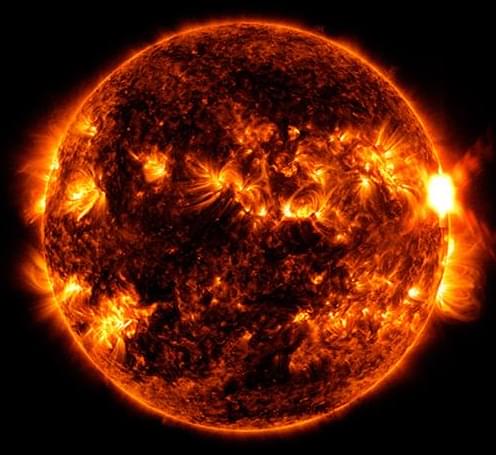Although solar flares have been classified based on the amount of energy they emit at their peak, there has not been significant study into differentiating flares since slow-building flares were first discovered in the 1980s. Scientists have now shown that there is a significant amount of slower-type flares worthy of further investigation.
Solar flares occur when magnetic energy builds up in the Sun’s atmosphere and is released as electromagnetic radiation. Lasting anywhere from a few minutes to a few hours, flares usually reach temperatures around 10 million degrees Kelvin. Because of their intense electromagnetic energy, solar flares can cause disruptions in radio communications, Earth-orbiting satellites and even result in blackouts.
The width-to-decay ratio of a flare is the time it takes to reach maximum intensity to the time it takes to dissipate its energy.
